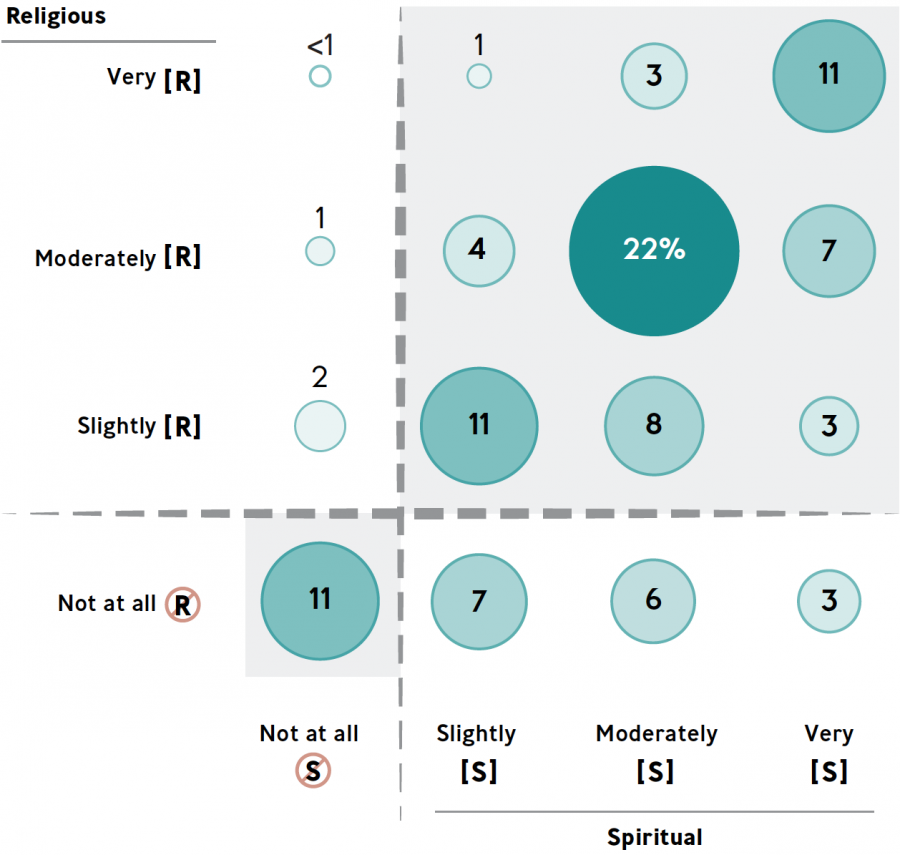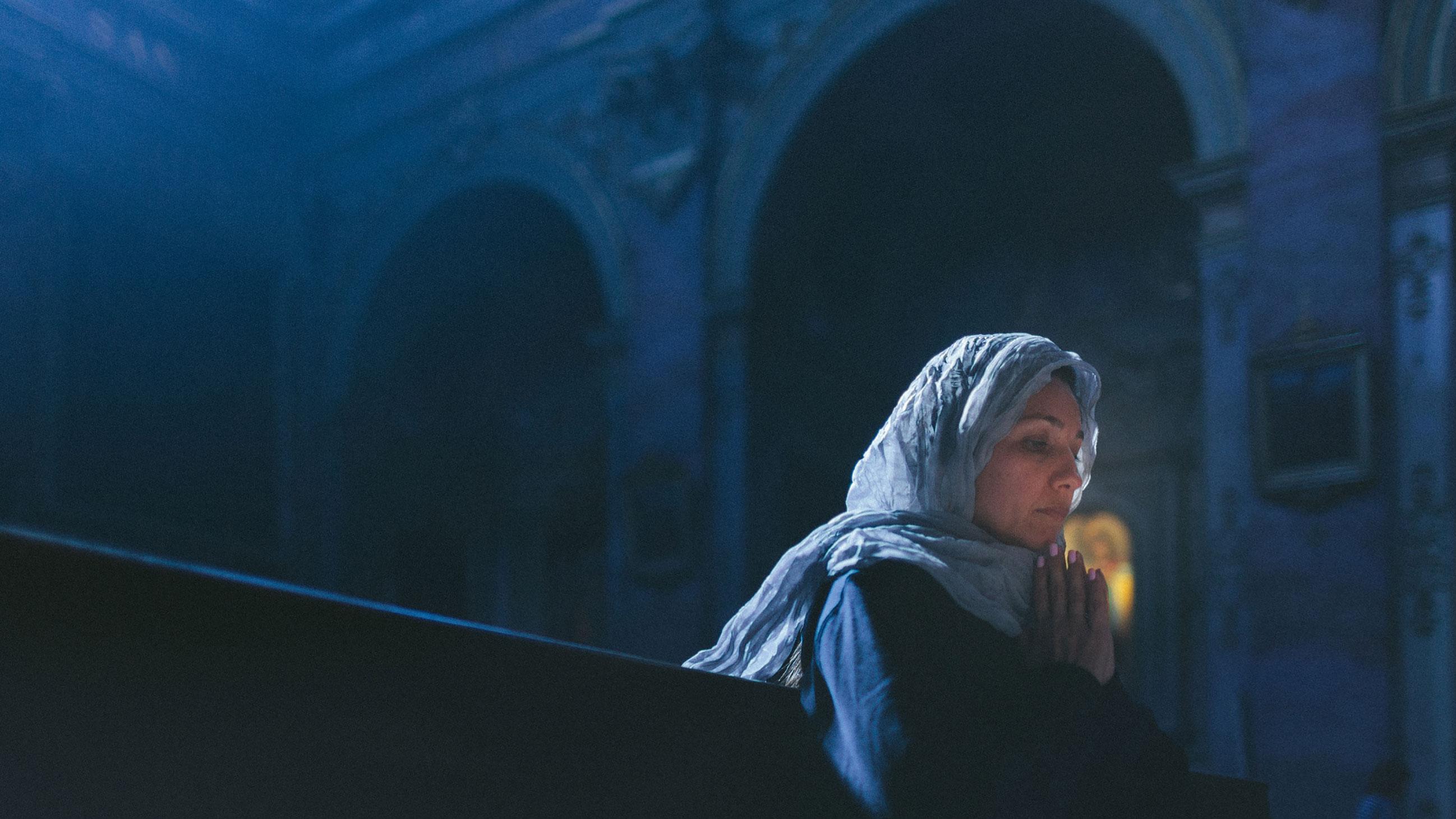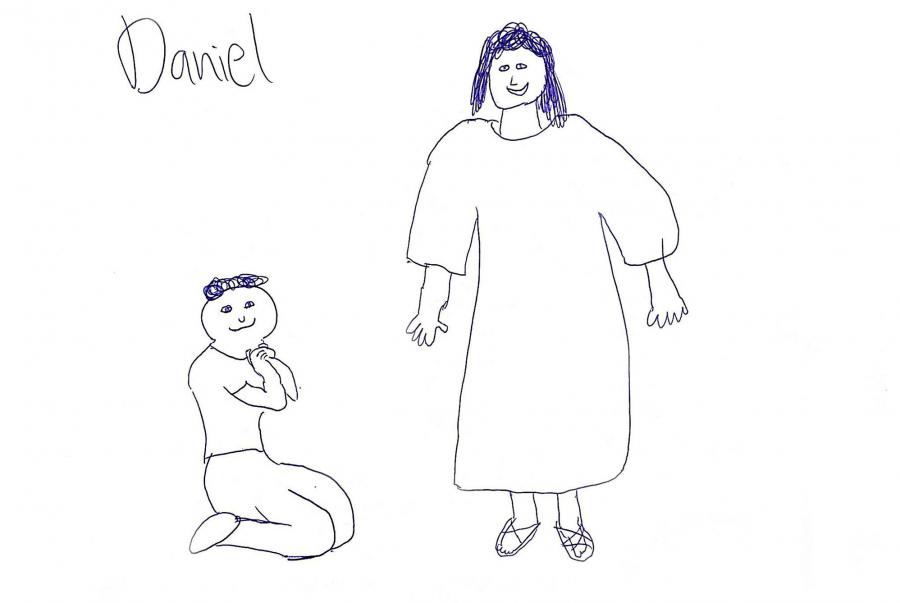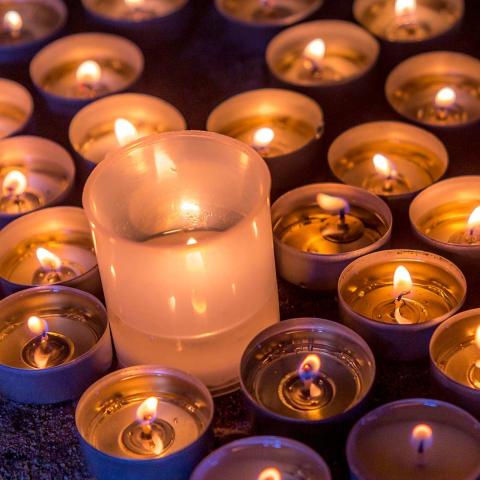
Spiritual Self-Identification

In this study, we asked two separate survey questions to explore spiritual and religious identity and intensity: “To what extent do you consider yourself a spiritual person?” and “To what extent do you consider yourself a religious person?”
A vast majority of people consider themselves both spiritual and religious.

People who self-identified as spiritual offered many different, and often unexpected, reasons for doing so.
People’s descriptions of what it means to call themselves “spiritual” revealed nuances about and limitations to defining spirituality solely by self-identification.
In conversations, it became clear that the extent to which people self-identify as “spiritual” and “religious” is closely tied to their personal associations or connotations regarding the words “spiritual” or “religious” themselves. People explained how different factors—from family history to recent spiritual activity to context—influenced how they answered the spirituality and religiosity survey questions. This led to unexpected differences between people who fall into the same spiritual-religious category.
For example, both Kat and Daniel identified as spiritual but not religious in recruiting surveys. Kat said during an interview conversation that she doesn’t describe herself as spiritual “at all.” When asked to describe the disconnect, she said:
“My mood changes throughout the week. If I’d gone to meditation the night before—I like my [Shambhala] Center—I’d have felt a little connected to them. I said moderately spiritual? I don’t know.”
Kat, 29
Moderately spiritual / Not religious at all
In contrast, in a focus group, Daniel drew and described his relationship with God:
“I talk to God a lot … that just means praying a lot, talking, having a connection with Him.”
Daniel, 20
Very spiritual / Not at all religious
Half of those who identify as spiritual but not religious, or neither spiritual nor religious, grew up in a religion, but left religion.
Focus group and survey participants described the complexities, nuances, or limitations of labeling themselves according to religious or spiritual identities.
“Non-practicing Catholic, with a lot of influence from the Quakers. Publicly, I would say I am Catholic for the purposes of my family and friends and based on my participation in those communities, but the participation is social and for ‘tradition’ reasons related to the communities I belong to; it is not for ‘religious’ purposes.”
[Survey respondent, name unknown], 48
Slightly spiritual / Not religious at all
Many people who don’t identify with any religion today still consider themselves spiritual to some extent.
However, not every participant who called themselves not religious at all necessarily labeled themselves agnostic, atheist, or “nothing in particular”—and they did not all disaffiliate from religion. Some focus group and interview participants who said they were not religious at all still identify with their religious denomination.
Respondents overwhelmingly described spiritual people in positive terms.
Focus group participants described spiritual people as having positive attitudes, such as being happy and joyful; having positive characteristics, such as being humble, calm, and centered; and relating to others in positive ways, such as being compassionate, generous, or caring. Negative descriptions were uncommon, but included using descriptors such as wishy-washy, “woo-woo,” delusional, or superstitious.
“Because of [my friend] Karen’s spirituality, she will not go out into the world to do intentional harm. She won’t go into a road rage. That’s not who she is. A lot of that is her spirituality. Who she’s made herself to be from her spirituality. She’s kindness, she’s self-loving.”
Robyn, 53
Moderately spiritual / Not religious at all
Over the course of two-hour focus group conversations, some shifted the amount to which they identified as spiritual.
Those who answered that they were more spiritual than in their original response to the question pointed to the variety of ways fellow focus group participants described spirituality themselves, described a spiritual person, or connected spirituality with actions.
“I’m not sure if I thought I did [have spirituality]. So it’s good that this [conversation] has given me some sense that I do have some spirituality. It reminds me of what puts me at peace and what makes where my spirituality is.”
Bret, 59
Not spiritual at all / Not religious at all



